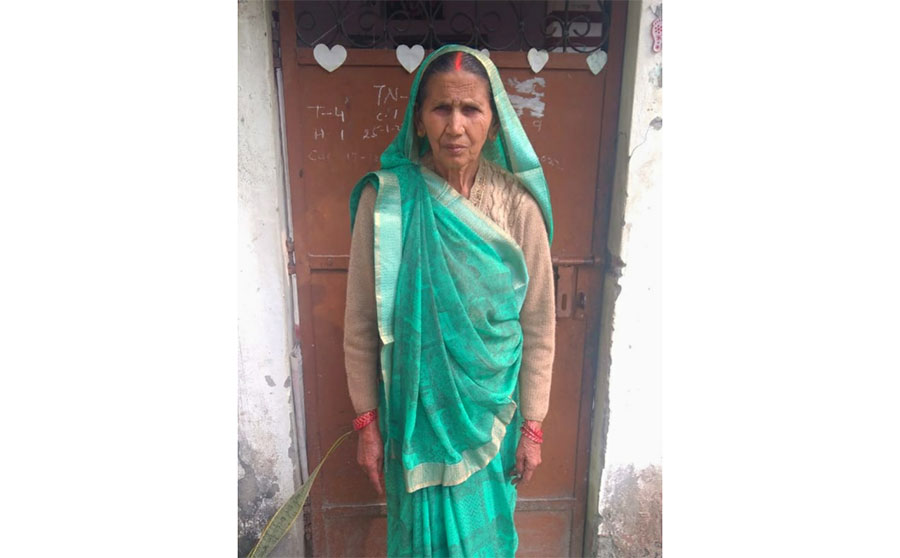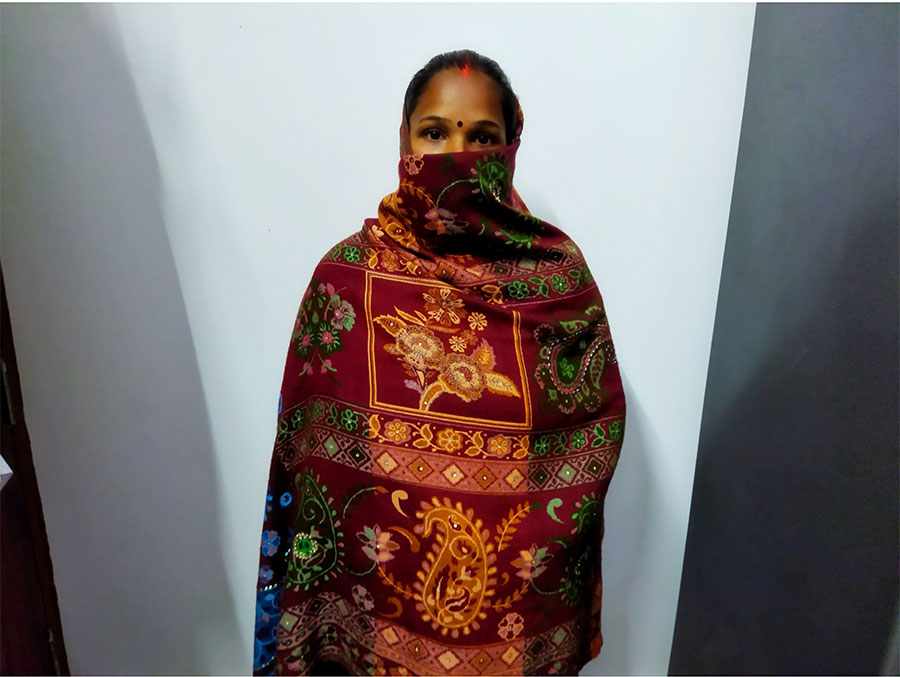“Corona Warriors”: The Asha workers of Uttar Pradesh
Asha Workers are the backbone of rural health infrastructure in India. Since the pandemic began, they have been actively involved in educating and helping people cope with the effects of COVID19.
- 28 January 2022
- 4 min read
- by Aayushi Shukla

It is 15:30 in the small village of Chirgoda, 350km from the capital of Uttar Pradesh, Lucknow. Champa Devi has just finished her daily Asha (Accredited Social Health Activist) work.
“Today I had to get up at 3.30am. It’s because Sunita was going to have a baby and I went to the hospital with her,” she says.
When asked to explain what her role was in Sunita’s delivery, she says, “I am the one who takes care of all pregnant women in the village. I advise them on what to eat and how to take care of their health while the baby is inside them. I encourage them to give birth in hospitals instead of their homes. I bring their infants to get their immunisation and encourage them to do family planning".

According to UNICEF, the maternal mortality rate of India has decreased from 130 in 2014-16 to 113 per 100,000 live births in 2016-18. The ground level efforts of these Asha healthcare workers have played a huge role in keeping mothers alive.
An Asha is appointed by the Indian government as the primary healthcare information distributor in far off hamlets and villages where poverty and illiteracy have deep roots. These Asha workers travel the length and breadth of their villages every day of the year to make sure that poverty-stricken communities are informed of the health benefits provided by the government.
“I went from home to home, asking people to get vaccinated. There was always the fear of bringing the disease home. But I went on to do my duty as a service to my community.”
During the COVID-19 pandemic, they have been at the forefront of tackling vaccine hesitancy among people by educating them about its benefits. There is at least one “Asha” in every village, the literal meaning of the term being “hope”.
Have you read?
The Asha Workers of India are being called ‘corona warriors’ for delivering health services to rural women during the pandemic. These women, often clad in traditional sarees, are game changers in the otherwise conservative landscape of rural India.
One of their biggest challenges, particularly with COVID-19, is the risk to their families. Manju Devi, an Asha worker from the city of Padrauna, Uttar Pradesh, explains, “I have a small daughter who has not been well during the pandemic. I was on vaccination duty for the government. I went from home to home, asking people to get vaccinated. There was always the fear of bringing the disease home. But I went on to do my duty as a service to my community.”

These healthcare workers are relentless in their service. Their main motivation, as described by Champa Devi, is the responsibility that comes with the job.
“If one mother is dying in my village because of not getting hospital treatment or if one child suffers from an otherwise preventable disease, it will be my responsibility. I go to people’s homes to convince them to get the vaccine. There are medical terms that we don’t understand but I know that vaccines make it easier to deal with the virus. The big city doctors have explained things to us on recorded messages we were sent by the government. It also helps that I am older because the villagers respect me as an elderly person and, therefore, listen to me,” Devi says.
Follow Aayushi Shukla on Twitter at @Aayu60630019
More from Aayushi Shukla
Recommended for you








